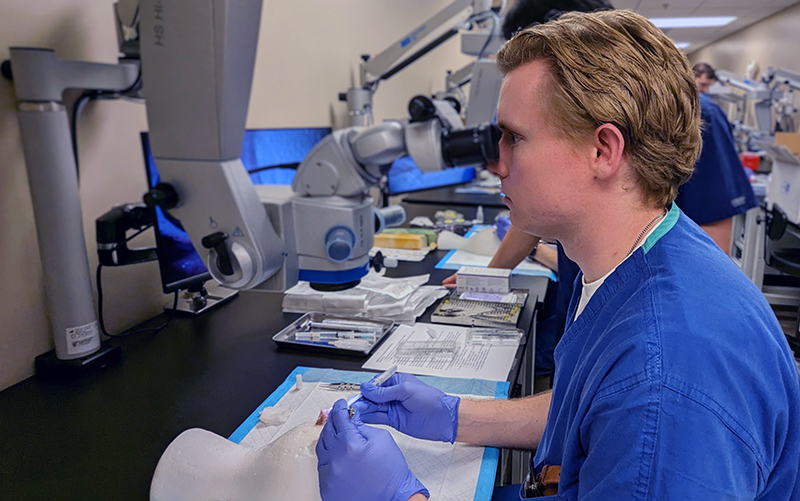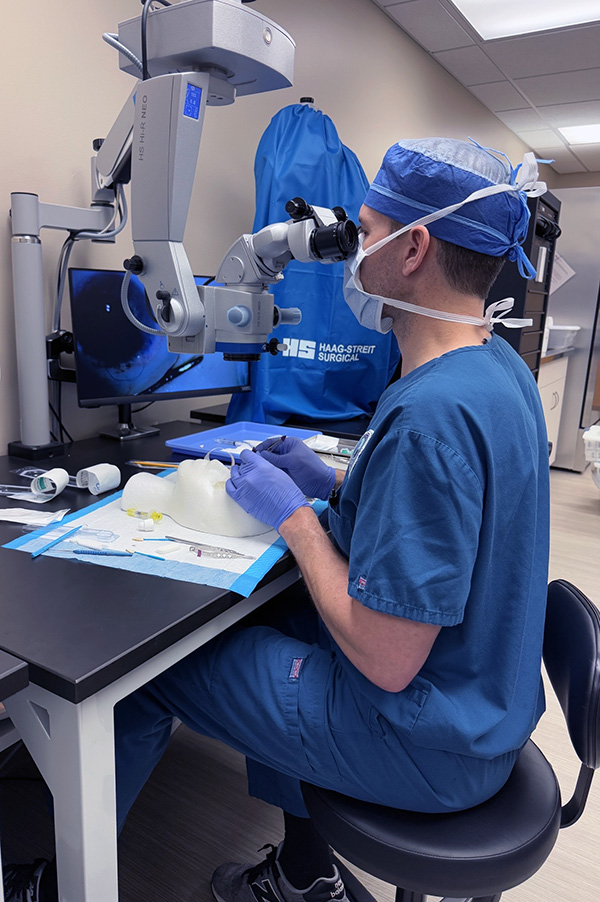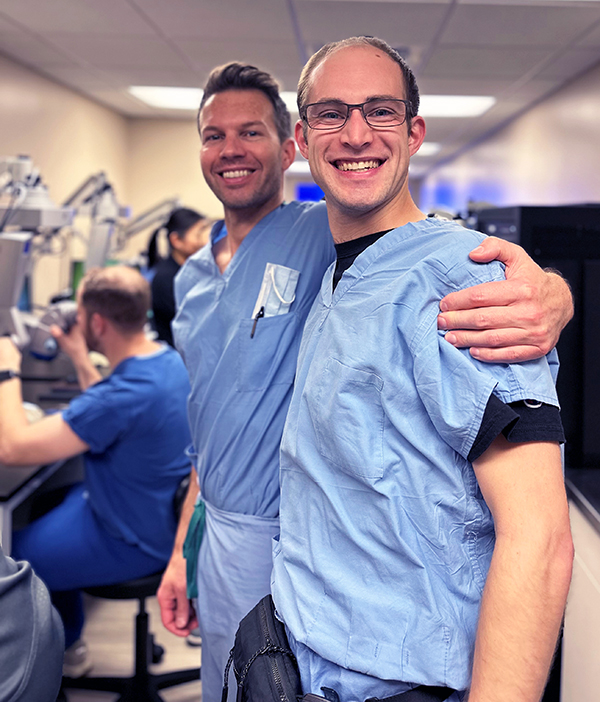For any ophthalmology trainee in the University of Wisconsin Department of Ophthalmology and Visual Sciences (DOVS), the hands-on experience gained at the Andrew T. Thliveris, PhD, MD Surgical Skills Training Facility (SSTF) is a cornerstone of their education.
The facility honors Professor Emeritus Andrew T. Thliveris, who retired from the UW in 2023. Originally located in a small, converted closet at the William S. Middleton Veterans Administration Hospital in Madison, WI, the training space could maximally only accommodate two learners. In 2023, it relocated to a larger renovated space at the UW Health University Station Clinic. The upgraded facility now supports up to 10 learners simultaneously and features state-of-the-art equipment that replicates an operating room environment. It is available for use with 24-hour access, including weekends.
“The SSTF is one of the most advanced surgical skills training facilities in the country, and it offers a hands-on experience that is crucial for surgical training,” said Travis Rumery, DO, SSTF medical director. “We believe that the foundation of surgical training occurs in the surgical training wet lab, where learners build skills, familiarity, and confidence in the steps of ophthalmic surgery prior to caring for patients in the operating room.”
Hands-on training in the SSTF is an integral part of the ophthalmology curriculum for learners at every stage of their academic journey, from pre-medical and medical students to ophthalmology residents, clinical fellows, and faculty. The facility also accommodates various learning purposes, programs, and initiatives, offering multifaceted surgical skills training in ocular and orbital anatomical instruction, basic and advanced cataract surgery, oculoplastic surgery, glaucoma surgery, open globe surgery, preparation for global ophthalmology fieldwork, and more.
The lab features 10 height-adjustable wet lab workstations, supporting proper ergonomics for the user. Each one is outfitted with cutting-edge equipment, including a surgical-grade microscope with a flexible arm tabletop stand and integrated video and foot pedal control. A high-resolution screen/monitor connected to the wet lab space allows for collaborative learning.
In April 2025, the department installed a new, upgraded EyeSi Surgical Simulator. This state-of-the-art virtual reality simulator plays a vital role in enabling residents to sharpen their surgical techniques in a safe, controlled environment — before they step into the operating room.
According to Dr. Rumery, an ophthalmology resident receives more than 20 hours of formal instruction on the simulator, along with additional self-directed training.
“The simulator offers extensive instructional resources,” Dr. Rumery said, “covering fundamental skills, surgical techniques, cataract and retina procedures, and complication management.”
“In addition, a recent upgrade, the Smart Wet Lab, enables learners, with a simple touch, to send recordings of their work to an attending supervisor for immediate feedback. The result is improved communication and streamlined instruction.”
“This equipment is an invaluable asset to our department,” Dr. Rumery continued, “and it would not have been possible without the incredible generosity and support of the entire DOVS community. I extend a heartfelt thank you to everyone who contributed to making it a reality.”
Looking ahead, Dr. Rumery has ambitious plans for the future.
“We intend to develop a video library of faculty-performed surgical cases, develop a laser eye surgery curriculum, and offer pediatric surgery instruction,” Dr. Rumery said. “We also hope to provide classes and continuing education opportunities to our alumni, global partners, and the broader ophthalmology community. The possibilities are endless.”



